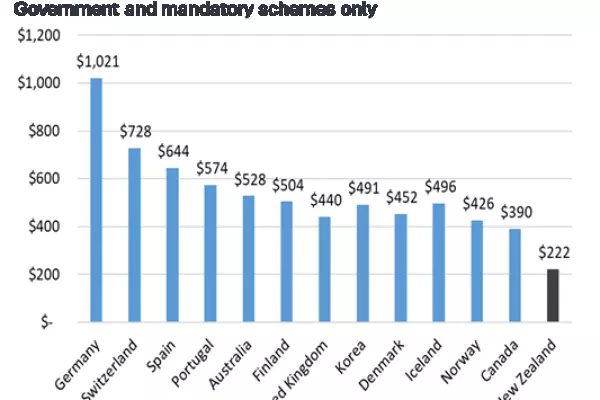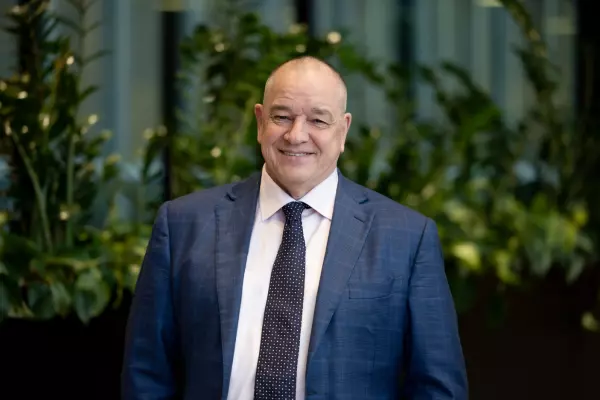BusinessDesk investments editor Frances Cook responds to emails from readers each week, answering questions about money. Below, you will find her expert advice. Send your questions to [email protected].
Hello,
I have a question regarding Kiwisaver.
I've recently turned 60 and have been pumping my Kiwisaver as best I can. I have a fairly healthy appetite for risk and have my Kiwisaver in a growth fund. I also have other savings, so Kiwisaver is not my sole retirement plan, but it will be a significant portion.
My question relates to how long I leave the investment in a growth fund.
I hear all the advice about being in growth when you have more than 5-10 years to go and in conservative when less than 5 but, noting the currently low state of all funds and overwhelming advice not to switch out of growth right now, I'm unsure when I should be planning to make the switch.
My best guess is to wait until the growth fund has recovered somewhat and then switch, but I'd be keen to hear some thoughts on a sensible strategy.
Thanks,
G.
Hi G,
It sounds like you’re starting from a really good place. You understand the basics of how to use KiwiSaver, and you’re going for it.
This can be half the battle, so it’s good to hear.
The split approach
In terms of your KiwiSaver, it might help if we don’t consider it all one big lump as you head towards retirement. There are KiwiSaver providers out there that will let you have some of it in a conservative fund, some of it in balanced, and some in growth.
So you might have money you plan to use in the next couple of years in conservative, money for the next five years in balanced, and the rest still earning and working harder in growth.
After all, you could well have another 30 years in retirement, so some of that money will surely need to keep working for you.
As you correctly pointed out in your letter, so much of your planning will come down to your time. But not all of your nest egg needs to be on the same timeline.
The personal timeline
On a similar theme of timing, do you plan to retire immediately? Some people do, some people don’t, and some plan to see how they feel when they hit that 65th birthday party.
If you’re not planning to retire at 65, or even if you’re not totally committed to that plan, that gives you more flexibility. If the market is still not doing well when you hit that milestone, you can keep working for another couple of years while waiting for your KiwiSaver to bounce back.
If you really want to quit the moment you can, then having some money in a safer spot is more important than a growth account. But again, it doesn’t have to be all of it, just what you’d need for those first few years.
How much? Well, that’s where knowing how much you spend in a year and how much you want to live a good life will come in handy. Run those numbers and see how you feel.
Many KiwiSaver providers can give you financial advice on this – that’s what you pay them fees for. They’ve got access to more information about you than I do, including your current contribution level and how much you’ve got in your account.
This is not only a free service to you; you’ve prepaid it through annual fees on your KiwiSaver account. So call or email them, and use those services they’re already charging you for.
Bounce back
When could you decide that the market has recovered? That’s a tricky one that I – and most financial advisers – would fail at.
It’s something of a "vibe check" that is more art than science. You’ll never get the max you can, but you can probably ensure you don’t make big losses.
At the moment, KiwiSaver balances are down because the economy is rough. You’ll see plenty of headlines of businesses laying off staff, of business confidence being down, that consumers aren’t spending much.
So, while that’s happening, balances might wobble around a little, but they certainly will be lower overall than at other times.
You might not pick the peak of the recovery, but you can understand things going better when the headlines do the opposite. The mood is happier when businesses are expanding, shouting tales of their successes.
Once again, KiwiSaver might still be up and down day to day, but overall it’ll be higher than it is at times like this. Those are usually good times to take a chunk from your growth and put it into conservative, ready to spend on happy retirement plans.
The "when to spend" question can be tricky, though, so I also hit up an expert to give us his thoughts.
Here’s Mark Lister, head of private wealth research at Craig’s Investment Partners:
There are two questions in there, so I’ll share my thoughts on both.
The first is the bigger one: is the reader okay sitting in a growth fund, and when should they move to something more conservative?
On the face of it, I would say it's absolutely fine to be where they are. They point out they have a high appetite for risk and other savings. I’m assuming they’re still working, too, which suggests they’re in no rush to call on these funds.
At just 60, they may well be around for another 20, 30 or even 40 years, which means their investment time horizon could be longer than they think. That’s a lot of time for inflation to eat away at their purchasing power, which means they still need their capital to work hard for some time.
They’ll start receiving a pension in a few short years, and if they own their own home, they could well be fine from an income perspective, between that and their non-KiwiSaver savings. If they’re in good health, they might also decide to keep working in some capacity.
The typical growth fund still has about 20% allocated to income assets, so this positioning feels about right to me for this person. My inclination would be to leave things as they are and re-evaluate in five years. It’s always hard to make judgments without knowing more about someone, but if their KiwiSaver provider is any good, they’ll have a financial adviser on hand to discuss such matters in more detail, so make use of that service.
The second part of the question is more about market timing – which is something very few people are good at – but it also ties in with the answer to the first question.
I wouldn’t let the short-term movements of markets override my longer-term retirement planning, so if they decide that a growth fund is still where it should be on a five-year view (or beyond), then just stay put.
I would only recommend switching if they are uncomfortable with being in the growth fund (which it doesn’t sound like they are) or if a deeper discussion with a financial adviser leads to a change of strategy for some reason.
But outside of either of those things happening, sit back, relax and let time and compounding do their job.
Send questions to [email protected] if you want to be featured in the column. Emails should be about 200 words, and we won't publish your name. Unfortunately, Frances is not able to respond to every email received or offer individual financial advice.
Information in this column is general in nature and should not be taken as individual financial advice. Frances Cook and BusinessDesk are not responsible for any loss a reader may suffer.














